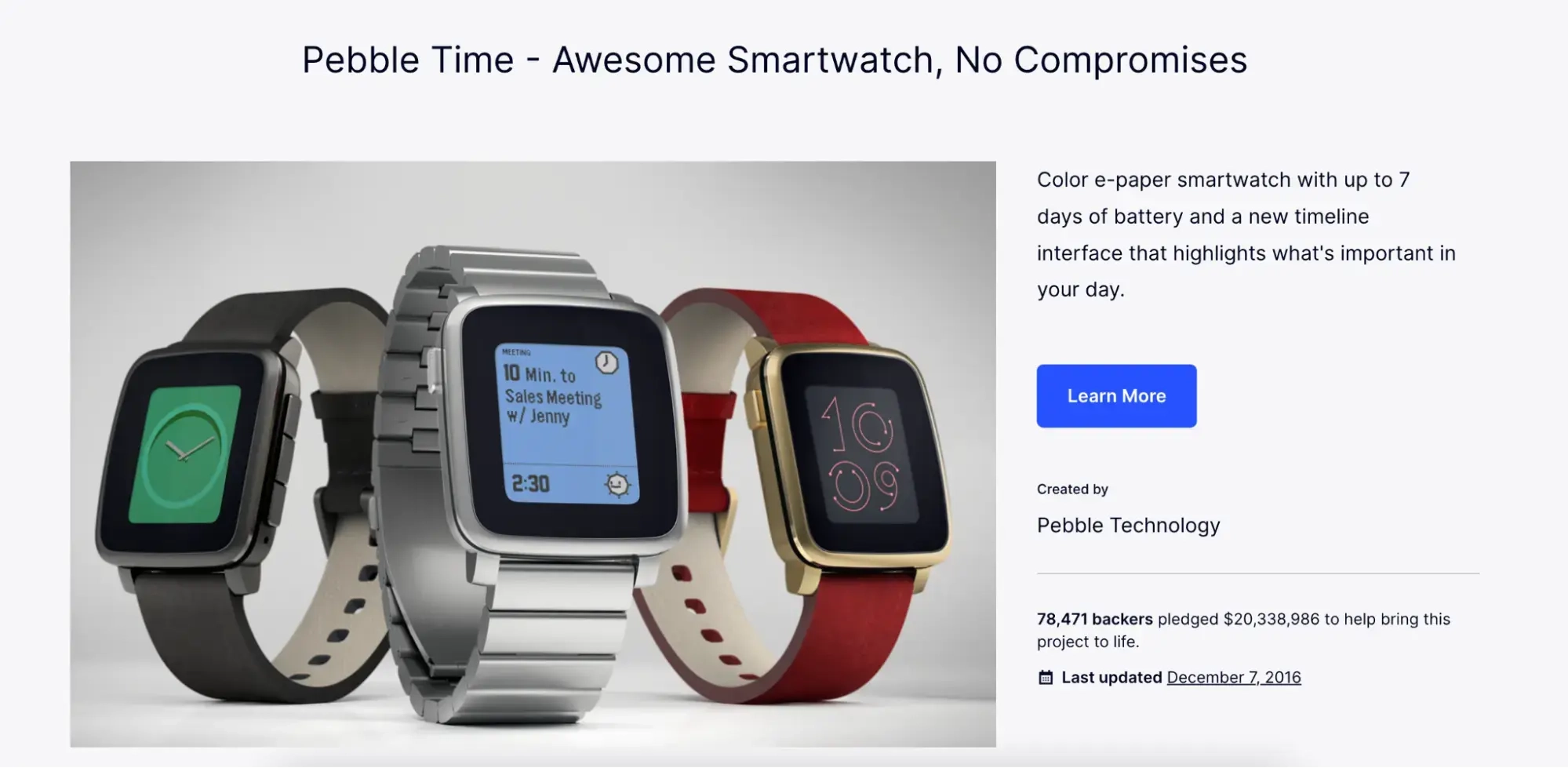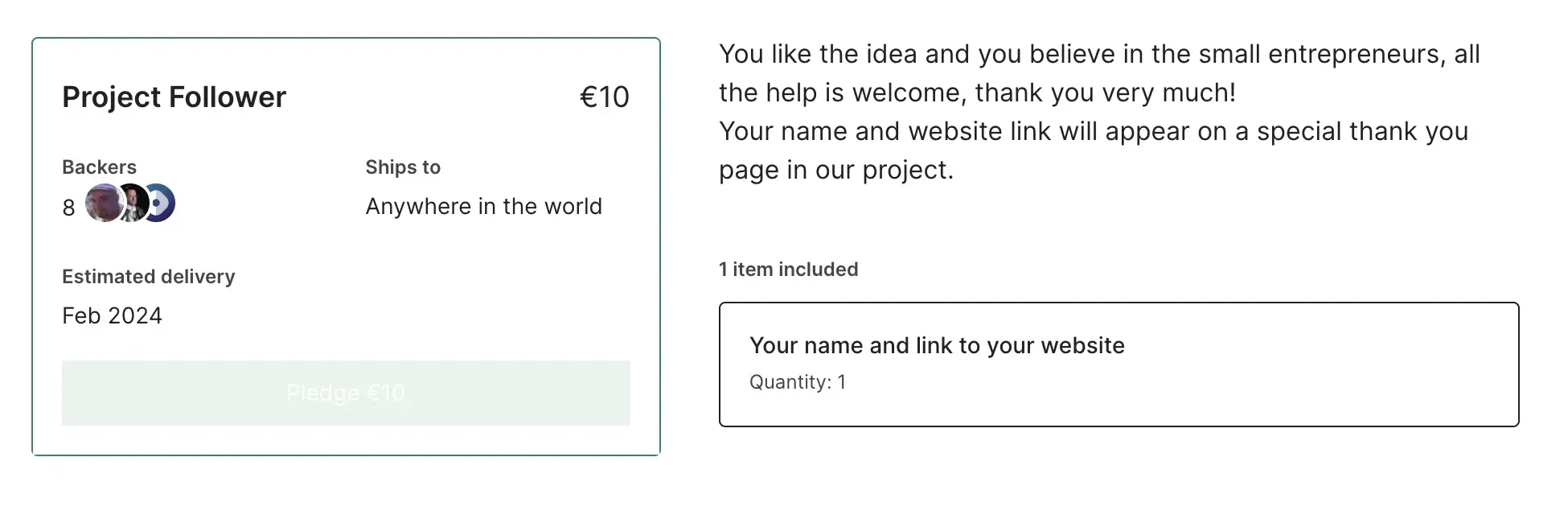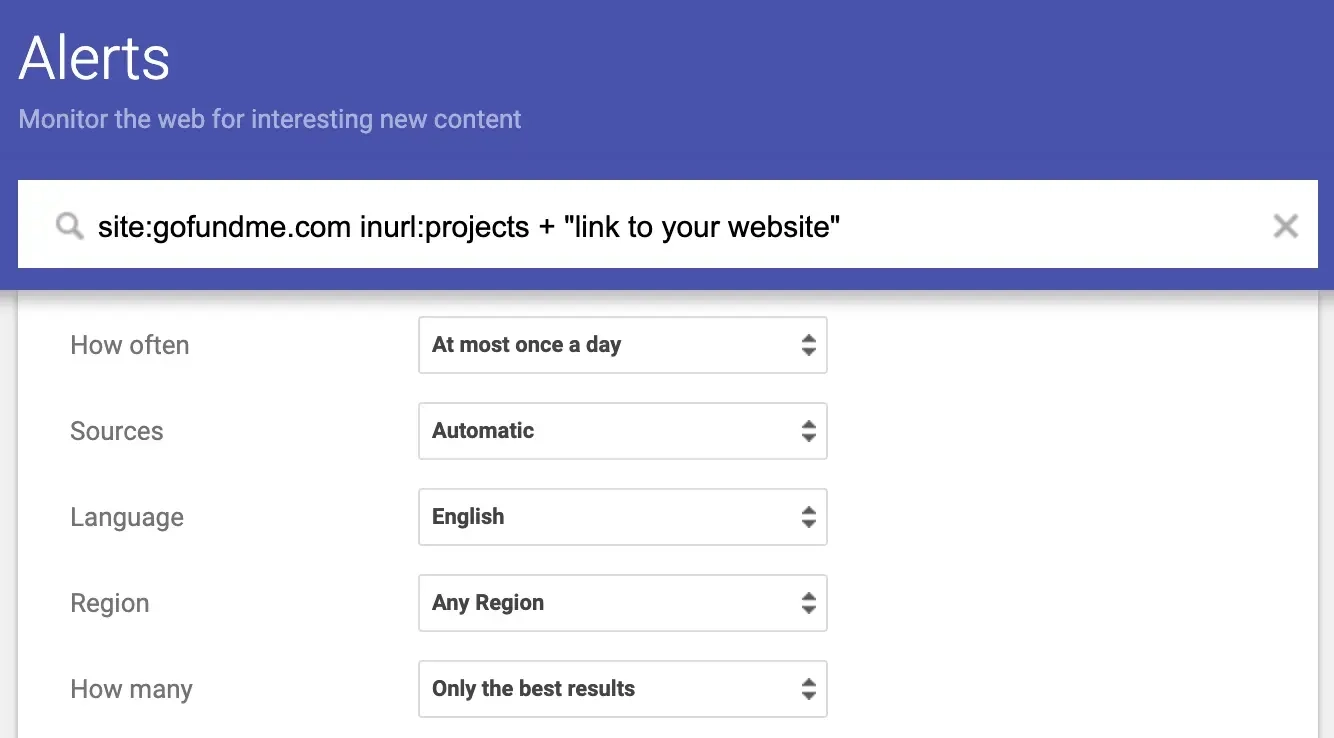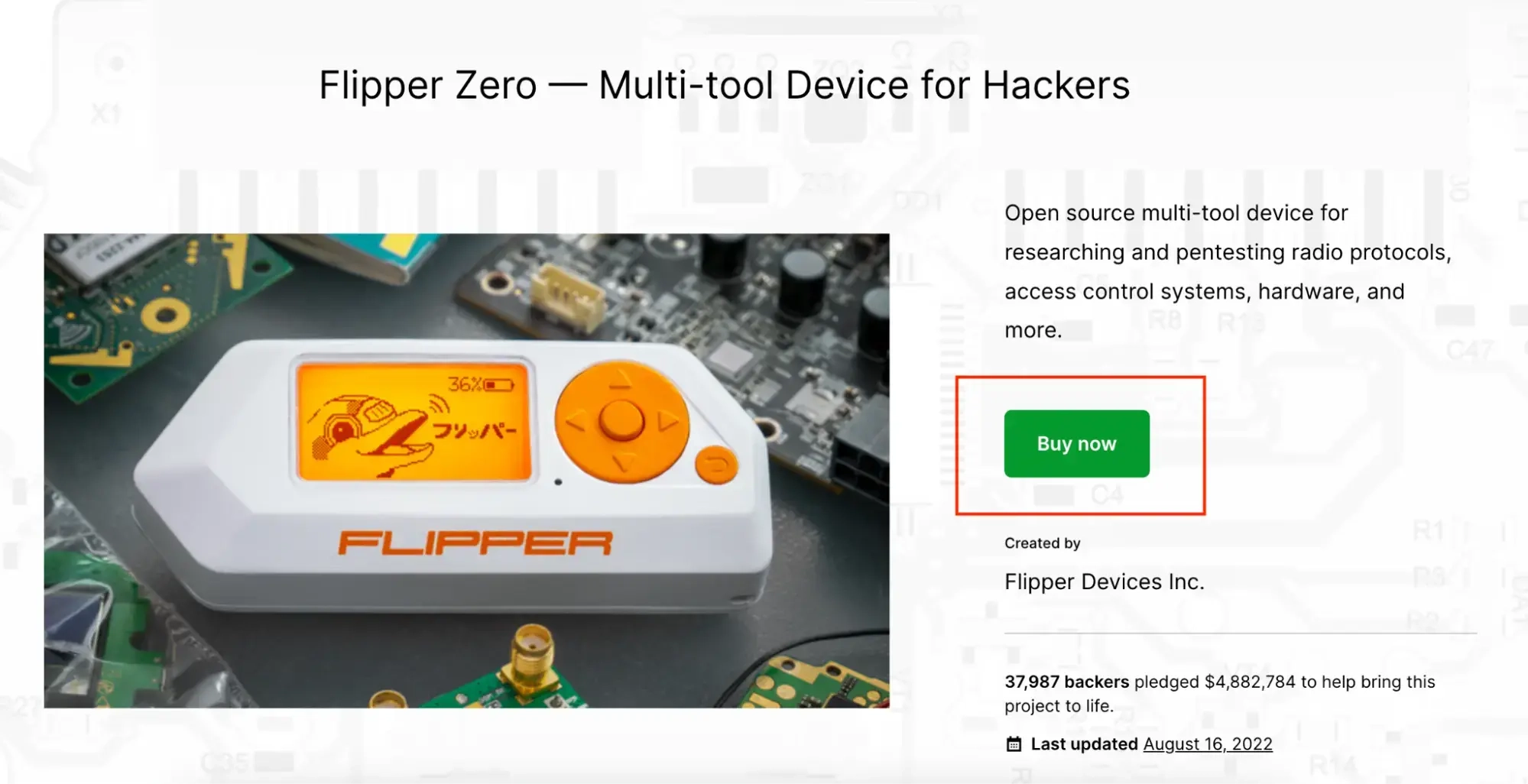
Crowdfunding Link Building: The SEO Strategy You’ve Been Missing

Stewart
Chief Link Building Strategist
You already know what link building is, and you've almost definitely heard of crowdfunding. But have you ever thought of combining the two to improve your search engine optimization (SEO) efforts?
If not, you might be missing out on a goldmine.
Crowdfunding isn’t just for launching innovative products like smartwatches or high-tech doorbells—it’s also a fertile ground for marketers who want to give their link-building strategy a boost.
While most SEO specialists rely on traditional approaches (like guest posting or broken link building), crowdfunding link building remains largely untapped. It’s much less competitive and there are potent opportunities for gaining high-quality backlinks—if you know what you’re doing.
So, why should you consider crowdfunding as a serious link-building strategy? Because it's budget-friendly, relatively easy to set up, and can help you improve your ranking in search engines.
In this article, we uncover strategies for crowdfunding link building and guide you to the top crowdfunding platforms for your niche.
Ready to find out how to turn crowdfunding into a strategic advantage for your link-building efforts? Let’s dive in.
💡 Key Points
⚡Crowdfunding link building is a lesser-known strategy that enables you to acquire high-quality backlinks by contributing to crowdfunding campaigns.
⚡By contributing to crowdfunding campaigns, you are not directly buying links, which aligns with Google's guidelines.
⚡You can build high-quality backlinks with crowdfunding link building. However, it still requires you to carefully select campaigns to avoid wasting resources on low-impact links.
⚡Identifying and evaluating crowdfunding campaigns can be complex. Consulting link-building experts can help you maximize your efforts.
What Is Crowdfunding Link Building?
Crowdfunding is a way to raise funds online through friends, family, customers, and individual investors.
This approach taps into the collective efforts of a large pool of individuals—mostly via social media and crowdfunding platforms—and uses their networks to gain even more reach and exposure.
Crowdfunding is a popular way to gain support for a wide range of activities, including startup and business venture funding, social causes, and personal fundraising needs.
For example, the Kickstarter campaign for the Pebble watch raised over $20 million:

But you’re not here to raise funds–you want to build links. So, how does link building fit into all of this?
When you make a donation to other people’s crowdfunding campaigns, you can earn a spot in their ‘backer’s list’ or on a ‘thank you’ page. Often, these shout-outs will include your name and a link to your website. This can be a cost-effective strategy to get your link placed on a site with high domain authority.
This is what a crowdfunding campaign with a link offer looks like:

💡 Why Crowdfunding Link Building Works So Well
Buying links is against Google's guidelines because it's considered an attempt to manipulate search rankings.
Bought links often give you no ranking benefits and, in the worst cases, you can even incur a ranking penalty.
When you donate to a crowdfunding campaign, you're not technically buying links–you're investing in real ventures. This is one of the few legal ways to “buy” links without going against Google’s guidelines.
Crowdfunding Link Building: How to Do It
🚀 1. Look for good funding opportunities
The first step in crowdfunding link building is undoubtedly the hardest: finding the right campaign or project to support.
It can feel daunting because of the sheer number of campaigns out there, but finding the right one to support can be a game-changer for your SEO.
A good crowdfunding campaign should:
Be relevant to your niche.
Be organized by a credible brand, business, or individual.
Give you the opportunity to have your link added to a website with high domain authority.
Ideally, it should be in support of a cause or product you care about, too!
Google's search capabilities save you time and streamline the process of finding the right campaign and crowdfunding platform.
Here’s how:
1) Use basic search operators
Search operators are characters and commands that expand the capabilities of regular text searches on Google.
These allow you to narrow down search results based on specific criteria, which makes your searches more precise and tailored to your needs.
Here are some Google search strings you can use to hone in on relevant crowdfunding campaigns:
⚡site:[website url] inurl:projects + “link to your website”
⚡site:[website url] inurl:projects + “donor page”
Just swap out [website url] with the URL of the crowdfunding platform you’re interested in.
For example, if you want to explore GoFundMe, your search string will look like this:
⚡site:gofundme.com inurl:projects + "link to your website"
⚡site:gofundme.com inurl:projects + "donor page"
2) Narrow down your search
To get even more specific, add keywords that are directly relevant to your brand right after “link to your website” and “donor page”. This tweak helps focus your results even more.
Here are some examples:
⚡site:gofundme.com inurl:projects + "link to your website” AND “smartwatch"
⚡site:gofundme.com inurl:projects + "donor page” AND “smartwatch"
Even with these targeted search strings, it’s not always straightforward. You’ll still need to scour search results and double-check the campaigns, so it can become time-consuming.
For example, some search results might mention "link" but not actually offer a real linking opportunity. “Donor pages” might display your name, but might not link to your website.
That's why it's so important to go through each campaign carefully before you decide to throw your support behind it.
Make sure the campaign fits your niche and gives you a chance to acquire high-quality backlinks.
🚀 2. Analyze their domain rating
Finding a relevant crowdfunding campaign that offers a link as reward is only the first step—the next is to make sure their link is actually worth obtaining.
This can be tricky because a lot of crowdfunding campaigns are run by startups, small businesses, or individuals who may not have established an online presence yet.
You might find the perfect opportunity, only to look at their domain rating in Ahrefs and find out it isn’t worth pursuing.
In the example below, the campaign organizer’s website has an extremely low domain authority rating, no traffic, and hardly any backlinks. Acquiring a backlink from this site would have very little (if any) SEO benefit:

Searching through crowdfunding campaigns and cross-checking their DR can be time-consuming, but the effort is worth it once you find a campaign that offers a high-quality link at a cost-effective price.
🚀 3. Donate to a crowdfunding campaign
Once you’ve found a relevant campaign with a link worth obtaining, it’s time to make that donation.
The process of making a donation can differ slightly from one crowdfunding platform to another, so follow the specific instructions provided by each platform.
Here’s a quick rundown on what you might expect:
✅ Select the campaign: Once you're on the campaign page, look for the donation or support button. It's usually prominent and easy to find.
✅ Choose your contribution level: Most campaigns offer different levels of contribution, each with its own rewards. Decide how much you want to contribute based on what fits your budget.
✅ Enter your details: You’ll need to provide some basic information like your name, email address, and payment details. Some platforms might ask for a billing address.
✅ Complete the transaction: Follow through by confirming your donation. Make sure everything looks right before you hit that final submit button.
💡 What to Avoid When Donating to Campaigns
The purpose of a crowdfunding link-building campaign is to get decent links from reputable websites.
Remember to stay focused on this objective and skip offers that don't directly contribute to your link-building efforts.
Here are some common offers to avoid:
Shout-outs on podcasts.
Mentions on social media platforms.
Temporary content (like limited-time landing pages).
Your name on a donor page, unless it’s linked.
🚀 4. Look out for your link on their website
Once you've made your donation, keep an eye out for your link placement on the campaign's website. This is where the real SEO benefit kicks in.
Depending on the platform and the fundraising campaign, your link might appear in various places, including:
On a dedicated “thank you” page.
Within project updates.
On a special page that lists all donors or supporters.
In the show notes or description (for podcasts, vlogs, or videos).
Don't hesitate to reach out to the campaign organizers if you don’t see your link where you expected to find it.
A friendly reminder can sometimes be necessary, and most campaign organizers will be happy to ensure your contribution is acknowledged.
💡 Check That Your Link Is a ‘dofollow’ Link
When you find your link, check that it’s a ‘dofollow’ link to ensure it’s passing SEO value on to your site.
Some sites set links to other websites as ‘nofollow’ by default, which doesn't contribute as much to your SEO efforts.
If you want to make sure you’ll receive a ‘dofollow’ link, visit the campaign organizer’s website or platform and check whether the donor links they showcase are 'dofollow' or 'nofollow'.
How to Use Google to Automate Searching for Opportunities
Manually searching for that unicorn GoFundMe or Kickstarter campaign can get tedious, so why not automate the process?
When you create a Google Alert, it monitors new content based on specific search terms and delivers updates directly to you.
This saves you time and effort by automating the legwork involved in finding new crowdfunding campaigns for your link-building strategy.
It’s a game-changer when it comes to staying on top of crowdfunding opportunities without having to search each day.
Here’s how you can set up Google Alerts to keep an eye on potential opportunities:
First, go to the Google Alerts website. In the search bar, enter your chosen terms.
In the example below, the search term is site:[website url] inurl:projects + “link to your website”:

Preview the types of results you will receive by clicking on the ‘Show options’ link beside the ‘Create Alert’ button:

This will open a drop-down that allows you to:
Refine how often you receive alerts.
The types of sources included.
Your language and region preferences.
How many results you want to receive.

Once you’ve adjusted the settings to reflect your preferences, click the “Create Alert” button.
After setting up the alert, Google will send you notifications via email or an RSS feed whenever new content matching your specified terms is found.
This makes it incredibly easy to catch new crowdfunding link-building opportunities as soon as they go live.
The Best Crowdfunding Platforms for Link Building
Relevance is a key ranking factor for search engines, which makes it all the more important to support campaigns that are related to your niche.
Crowdfunding websites all have their own unique audiences, which makes some more suitable for certain industries than others.
By selecting a platform that aligns with your business sector, you increase your chances of acquiring relevant, high-quality backlinks.
Listed below are some of the top crowdfunding platforms with their respective niches highlighted:
💰GoFundMe
GoFundMe was originally launched to allow people to raise money for anything from life events to challenging circumstances without being subject to the constraints of traditional fundraising rules.
It has since become one of the most popular crowdfunding platforms for personal and charitable causes.
When it comes to businesses that want to boost their link building, it’s an excellent platform for those in the following sectors:
Healthcare companies.
Nonprofits.
Social enterprise organizations.
💰Kickstarter
Kickstarter helped pioneer the idea of crowdfunding by allowing creators to solicit funds for creative projects in exchange for rewards.
It is particularly well-known for helping launch innovative products in tech and design. This platform is best suited for businesses in these niches:
Technology.
Design.
Consumer goods.
💰Indiegogo
Indiegogo launched as a platform for funding indie films but quickly expanded to include a wide range of projects.
Unlike Kickstarter, Indiegogo offers both fixed (all-or-nothing) and flexible funding options. It’s ideal for businesses in creative industries, including:
Film and TV.
Fashion.
Advertising.
💰Patreon
Patreon was created to provide a more sustainable income model for artists and creators through monthly memberships.
This allows fans to support creators with regular payments in exchange for exclusive content.
It’s best suited for brands that offer products or services that are relevant to creative professionals, such as:
Art supplies.
Musical instruments.
Writing tools.
💰RocketHub
RocketHub started as a crowdfunding platform but has evolved into one that also offers entrepreneurs a range of educational tools.
RocketHub is ideal for companies involved in innovation in the following niches:
Scientific research.
Creative arts.
Startups.
💰Lending Club
Starting out as one of the first peer-to-peer lending services in the U.S., Lending Club allows borrowers to get loans from individual investors rather than traditional financial institutions.
Businesses in these sectors should consider Lending Club for their link-building efforts:
Financial services.
Fintech startups.
Financial education.
💰AngelList
AngelList started as an online introduction board for tech startups that needed seed funding.
It has grown into a platform for startups and provides tools to raise funds, recruit talent, and more.
Tech companies, such as those below, can find potential crowdfunding link-building opportunities here:
Software development companies.
AI companies.
SaaS companies.
Bonus Strategy: Launch Your Own Campaign on a Crowdfunding Platform
Launching your own crowdfunding initiative involves creating a project on platforms like Kickstarter or Indiegogo to raise funds for a new product, service, or initiative.
You’re probably wondering how this is relevant to your link-building efforts.
Using crowdfunding platforms usually involves linking to your website from the crowdfunding website itself. This allows you to tap into the high domain authority of these sites.
Here’s an example of what this looks like:

Kickstarter has an incredibly high domain rating of 92. Having a backlink from a site with such a high domain rating can have a positive impact on your SEO:

Here's why you should consider launching your own crowdfunding campaign:
✅ High domain authority: Platforms like Kickstarter and Indiegogo are well-established websites with high domain authority. This means that links from these platforms to your website are seen as high-quality endorsements by search engines.
✅ Keyword optimization: By choosing keywords related to your business and incorporating them into your campaign page, you increase the likelihood that your crowdfunding project will rank for these terms in search engines.
✅ PR: Crowdfunding campaigns, especially those with unique or innovative propositions, can generate media buzz. When news outlets, blogs, and industry influencers talk about your campaign, they often provide backlinks to your campaign page and main website.
✅ Audience engagement: Crowdfunding allows you to engage directly with consumers who are interested in your project. This can lead to further mentions across social media and other platforms, creating additional backlink opportunities.
ℹ️ What to Keep in Mind before Launching a Crowdfunding Campaign
It may seem obvious, but launching a crowdfunding campaign means your business needs an innovative product to launch or a worthy cause to support.
Businesses that do not have a well-defined product may struggle to create a compelling crowdfunding campaign—or, even worse, launch a campaign for a product that isn’t able to handle rapid scaling.
If you’re supporting a charity, perform due diligence to make sure it’s reputable.
Failing to deliver on your campaign promises can lead to negative publicity, which may outweigh the backlinks you gain.
Is Crowdfunding Link Building Worth It?
Crowdfunding link building is a unique way to diversify your SEO strategy.
While it shouldn’t be your sole link-building strategy, it complements other techniques like content marketing, guest blogging, or creating valuable content.
Here’s why you should consider it as a part of your broader SEO efforts:
✅ Quality links: Reputable organizations on crowdfunding sites often boast high domain authority and offer a legitimate way to secure quality backlinks.
✅ No need to purchase backlinks: Unlike the risky business of buying backlinks, building links from crowdfunding platforms is safe and doesn’t go against search engine guidelines.
✅ Content marketing: Supporting campaigns on crowdfunding platforms can become valuable material to include in your content marketing efforts. You can write a blog post about the campaigns you support, share updates, and engage your audience.
✅ Visibility: Crowdfunding campaign organizers often shout out about their donors on their social media and other platforms. Even though this may not provide direct SEO benefits due to "nofollow" links, the exposure can lead to brand awareness and organic traffic.
Like with any other strategy, crowdfunding link building does come with some potential downsides:
❌ Time-consuming: Even with Google Alerts, finding the right campaigns can be time-consuming. Many crowdfunding projects offer physical items or name shout-outs as a reward, and it can be difficult to find ones that offer high-quality links in return.
❌ Cost: While it’s often a cost-effective strategy, crowdfunding link building can get expensive if obtaining a link requires a large donation. This may not always justify the single link you receive, especially if your budget could be used more efficiently.
Get Expert Guidance on Crowdfunding Link Building
The key to successful crowdfunding link building is selecting the right campaigns that align with your niche and can naturally incorporate your website’s link.
This requires a keen eye for potential and a strategic approach but, when done correctly, it opens up a world of opportunities for link building.
If you're ready to explore the potential of crowdfunding but aren't sure where to start, it might be time to partner with link-building experts.
Ready to find out how crowdfunding can be integrated into your overall SEO strategy? Get in touch with us!
